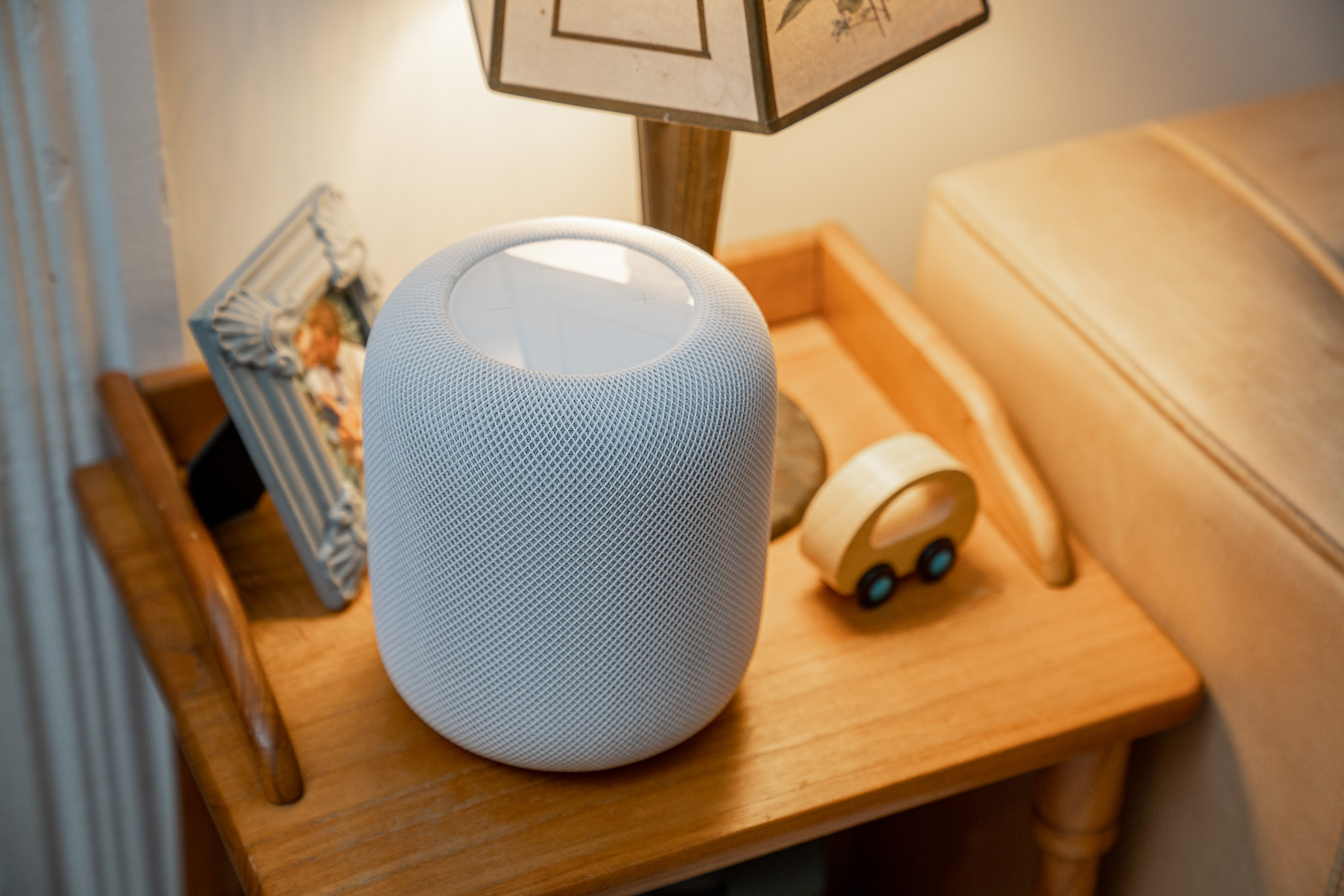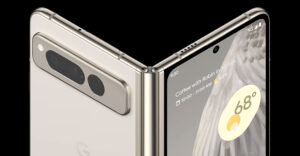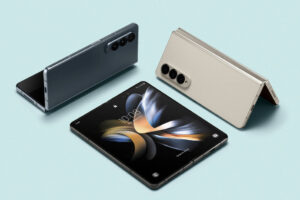Apple’s “all-new” HomePod is a rehash. Apple doesn’t promote the first HomePod as it does new iPhones and Macs. It’s odd, yet it makes sense. Despite six years of research and a good sound, the first HomePod failed due to its high price and Siri’s flaws. Apple discontinued it in March 2021, leaving just the $99 HomePod Mini. “HomePod Mini is our focus. Apple announced the original HomePod’s discontinuation.
The Mini has grown into a valuable smart home gadget that sounds well despite its small size, so prioritizing it was right. Despite hardware reliability issues, Apple has added additional features to the original HomePod long after it was discontinued.
A “Small” product can only last so long without a larger one. Full-size HomePods are back. The $299 device, which will be offered starting February 3rd, shows that Apple tweaked its initial idea rather than starting from scratch. This HomePod boasts additional sensors and smart home functions, yet it looks and sounds like the original. This is not the rumored screen-equipped HomePod (and many have been hoping for).
HomePod 2 looks like its predecessor. The new mesh-encased version is shorter and lighter. Top-side LED animations now cover the lustrous surface. Comparing the gadgets wouldn’t reveal this. When you use Siri or the volume controls, the entire HomePod lights. (These volume buttons are now permanently printed on the surface; on the prior model, they were lighted and could disappear, which volume controls should not do.) Swirling hues are similar, but bigger. No full touchscreen.
The glossy top piece is now glued into the top, making cleaning harder. (Prepare for dust to stick to the panel’s edge). The HomePod comes in “midnight” (black) and white. Just the Mini has entertaining colors—the company’s high-end cellphones aren’t allowed. This new white HomePod may get stains and dirt like the old ones.
Thankfully, Apple now provides a user-removable power cord. The original’s may now be removed without much force. Instead of the strange proprietary plug, Apple now uses a figure-8 connection. After replacing the braided power line with a black power cable from another product, the HomePod worked properly without the circular cap covering the hole. If your original power cord breaks, this simplifies things.
The new HomePod has five beamforming tweeters, four microphones, and Apple’s S7 chip, which debuted in the Apple Watch Series 7, instead of the iPhone-based A8 in the original. Siri still heard my queries over reasonably loud music despite fewer mics. The S7 Processor improves Apple’s HomePod audio tuning. I’ve had no difficulties with the SoC upgrade, which downgraded Wi-Fi from 5 to 4.
The second-generation hardware also has an U1 Ultra Wideband processor, providing it the same handoff feature as the HomePod Mini: bring a compatible iPhone near the touch surface, and you’ll be requested to play whatever you’re listening to on the speaker—or vice versa if you’re leaving the home. The iPhone 14 Pro and Pro Max’s Dynamic Island will display a HomePod icon when near a HomePod speaker. Long-press to see what’s playing or adjust the volume while multitasking.
The new HomePod has the same separate temperature and humidity sensors as the HomePod Mini (but dormant until just recently). Apple says a “brand-new system sensor” increases HomePod real-time audio adjustments. The new sensor enhances the original speaker’s background tuning based on a room’s acoustics.
Apple’s new HomePod’s high-excursion woofer, which can be expanded up to 20mm to improve air displacement and bass sound, is its most important component. The HomePod has stronger bass than the Sonos One, Amazon Echo, and Nest Audio. The inbuilt microphones dynamically monitor and tune the output to deliver a strong, tight, and clear low-end kick.
HomePod still relies on Apple Music. Pandora and Deezer can be Siri song request defaults, but Spotify won’t. Amazon Music and YouTube Music don’t work. The $300 HomePod can AirPlay audio from any of these apps on an Apple device in seconds, but the lack of deeper integration makes it best for Apple Music subscribers. The HomePod lacks Bluetooth playback, aux input, and turntable pairing. Siri and Apple Music dominate HomePod.
How’s that? Still he new HomePod sounds the same after several days of listening to it alone and in stereo pairs. The second-generation speaker will please fans. The two generations’ musical styles differ slightly. The latest HomePod may perform a guitar solo with greater energy. The fundamentals are the same. Since Nilay’s first HomePod review, the driver configuration has changed, but the approach hasn’t.
Apple’s real-time tuning seeks to produce a rich, full balance with crystal-clear voices by analyzing its environment and bouncing sound off nearby walls. As it emanates sound from all sides, it usually does this.
HomePod audio lacks warmth. Dan Seifert preferred Sonos speakers, calling their sound clinical and close to lab research’ optimum sound characteristic. One HomePod outperforms Amazon and Google’s best smart speakers. I like its sound field over a Sonos One. Nevertheless, the HomePod ignores your iPhone’s Apple Music EQ settings and cannot be customized. You can only temporarily reduce bass volume in settings for a late-night listening party.
A $299 HomePod has limited capabilities. Stereo pairs improve Apple Music’s lossless streaming repertoire. Spatial audio is more immersive than headphones and earbuds. With two HomePods projecting a virtual array of soundbeams around the room, certain spatial tracks feel more atmospheric, but poorly managed Atmos recordings are still inferior to stereo.
Software has bugs. My HomePod review devices sometimes seemed confused about whether to play lossless or spatial audio. The Now Playing panel rarely showed Atmos or lossless badges. Voice commands cannot turn spatial audio on or off, which is odd. Without it, the Home app hides lossless and spatial audio choices. Siri still abandons simple music requests. You’ll hear “Sorry, that took too long” often.
Connecting two HomePods lets you use them as wireless speakers for an Apple TV and enhances stereo sound. (With a single unit, results will be less impressive.) With the latest Apple TV 4K and a modern set, you can connect the streaming player to the eARC connection and configure the HomePods to handle all TV audio.
When playing MLB The Show with a linked PS5, I was amazed at how well this worked. There was no latency or audio sync issues during bat cracks or glove slams. The HomePods’ woofers provide movies, TV, and games great bass. Because this all works beautifully and the eARC technology only recently exited beta with tvOS 16.3, I’m convinced that Apple has more home theater products. Why bother? A pair of HomePods outperforms several budget soundbars. Beamforming tweeters spread sound well. These speakers provide wonderful music and movies.
Two HomePods cost $600. If you have the money, it’s an Apple ecosystem method that works really good.
HomePod is a smart home hub and virtual assistant. The new HomePod is a great speaker with hands-free Siri voice commands for Apple fans. If you need a replacement or its performance has declined, you won’t be dissatisfied. (Unless replacing a $350 speaker in less than five years dissatisfies you, which is understandable.) Despite its low sales, many HomePod owners still recommend it.
If sound quality doesn’t matter, the HomePod Mini is best. Many people don’t want to spend $200 for richer and louder music. If you’re not wedded to Apple’s ecosystem, Amazon, Google, or Sonos smart speakers may provide almost equal music quality and smart home capabilities for a fraction of the HomePod’s price.
Apple calls the second-generation HomePod “all-new,” yet it was only redesigned. Its return meets a demand and gives Apple time to create more ambitious home products. Apple’s $299 speaker sounds great, but with competitors like Sonos prepping major new items in the coming months, wonder whether Apple played it too safe.


